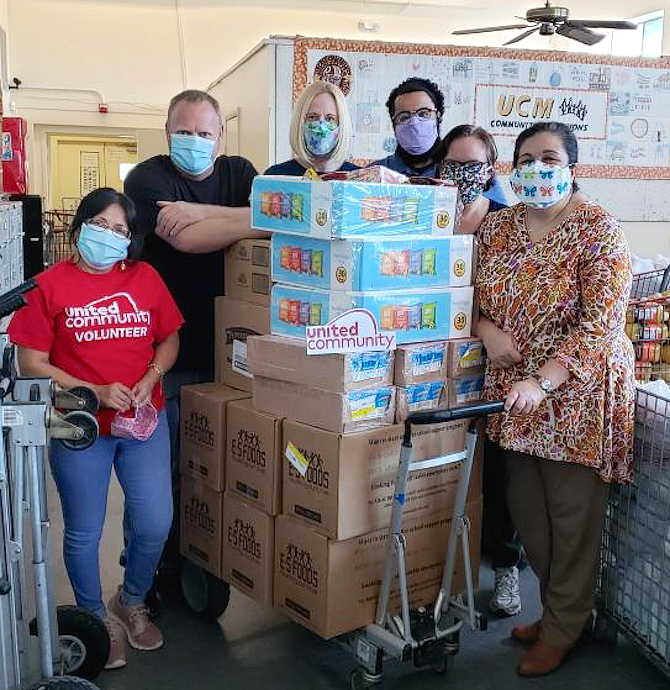As public health officials work to contain the COVID-19 outbreak, United Community is grappling to combat a crisis of a different kind – hunger. Across Fairfax County, organizations have been working with haste to provide resources for those most vulnerable. Fairfax County Public Schools distributed 10,000 grab-n-go meals to students in need on March 19, alone.
Since then, 17 million Americans have lost their jobs.
“In the month of March, the number of new families coming to our food pantry doubled,” Stepping Stones Director Cajethan Ekeagwu said. “Eighty percent of them came in the last two weeks.”
The neighborhoods surrounding United Community’s food pantry are among the most impoverished in Fairfax County, with more than 15 percent of residents living below the poverty line – prior to COVID-19. As the economic impacts of the global pandemic continue to grow, the lines outside the food pantry have grown longer and longer.
“This is only the beginning,” said Alison DeCourcey, United Community’s Executive Director. “The only way we can keep a public health crisis from becoming a hunger crisis is to rally around our neighbors in need and provide them the resources they need. That is where our organization is laser-focused, right now.”
As part of this massive effort, United Community has repurposed much of their employees to meet the community’s rapidly growing needs.
“It’s sad to see just how many people are struggling,” Community School Coordinator Marcia St. John-Cunning said. “We’ve seen cancer patients, expecting mothers, and elderly couples risk their lives to come get help – they have nowhere else to turn.”
Like many United Community employees, Marcia’s work has shifted dramatically in the past two weeks. Before COVID-19, she worked onsite supporting families at the Community School at Mt. Vernon Woods Elementary School. Now she alternates her days between providing virtual help to those families and in-person help to dozens more at the food pantry.
United Community isn’t acting alone. Working with Fairfax County Government, the Capital Area Food Bank, and other generous donors, the Fordson Road food pantry has become the Route One Food Hub for local families impacted by COVID-19. Diapers are also being distributed, thanks to a partnership with the Greater DC Diaper Bank. However, as the number of local COVID-19 cases continues to climb and neighbors continue to lose their jobs, United Community knows the supply is not enough to meet the community’s urgent needs.
“Last week, our main food supplier informed us that we will have to cut back our food order,” Ekeagwu said. The news comes as United Community plans to launch a second distribution site for families in need – many of whom lack transportation to get to Fordson Road.
“We’re working with the County and other food suppliers to find the quickest and safest way to serve our community,” Ekeagwu said.
United Community is asking those who would like to help to donate to United Community’s COVID-19 Emergency Response Fund at www.unitedcommunity.org.
